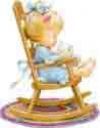|
ESL Forum:
Techniques and methods
in Language Teaching
Games, activities
and teaching ideas
Grammar and
Linguistics
Teaching material
Concerning
worksheets
Concerning
powerpoints
Concerning online
exercises
Make suggestions,
report errors
Ask for help
Message board
|
ESL forum >
Grammar and Linguistics > plurals
plurals
|

mirela.sorina

|
plurals
|
|
I have a grammar queations- which nouns finishing in "o" do not take the plural �es"; I know that those that are considered neologisms, such as photo; is there a better explanation/ rule? After a while all neologisms become common words, so how can we decide? |
12 Apr 2012
|
|
|
|
|
|

Olindalima ( F )

|
|
As far as I know, it goes like this:
Words ending in consonant + o add es. Examples hero/heroes, potato/potatoes/ tomato/tomatoes ...
Words ending in a vowel + O follow the general rule Examples cuckoo / cuckoos
Also words with a foreign origin follow the general rule. Examples photo / photos, piano / pianos ...
Hope this help
Linda |
12 Apr 2012
|
|
|

mirela.sorina

|
|
thanks- still how should the ss know which words are foreign? |
12 Apr 2012
|
|
|

ueslteacher

|
Make a list of commonly used words borrowed from other languages which follow that rule and just introduce them to your ss. Advise them to consult a dictionary if they come across any words ending in "o" which they aren �t sure about. Sophia |
12 Apr 2012
|
|
|

almaz

|
|
I �m afraid the �foreign word � rule doesn �t really stand up. Apart from the fact that hero, tomato and potato are themselves borrowings from other languages anyway, Linda �s �foreign � examples are actually abbreviated forms of photograph and pianoforte. In any case, there aren �t that many �native � nouns in English which end in -o (I �m thinking hairdo - hairdos at the moment) Otherwise, I �d go with Sophia �s advice and ask your students to check a dictionary. |
12 Apr 2012
|
|
|

Olindalima ( F )

|
|
Hi Almaz
Thanks for your updating of my old grammar rules.
The fact is that for the common nouns, we, latin people, have a special feeling of what nouns are not from an anglo-saxon origin. All the words that are similar,if not the same as we use, we know they are not "English" nouns, somehow, they are more or less LATIN, for us.
The only word that disturbs me is the common "potato", which, MHO, is as latin as our " batata" ; it �s really difficult for me to explain, but the phonetic evolution we had, from latin to portuguese, shows me that that "P " and " B" , many times were misspelled or missconfused, or wrongly used. We have lots of examples where P was updated to B . We have many words, differently used, because some arrived to us by common people speaking and the "same" words were brought by old Latin, and also, by old Spanish and old French. We have both words, used in different situations. This is quite an interesting topic, but I am not an expert, anyway, I thank you for leaving me this note.
Linda |
12 Apr 2012
|
|
|
|
|

mirela.sorina

|
|
so , you have to agree, there is not a rule there... |
13 Apr 2012
|
|
|